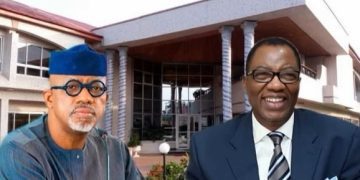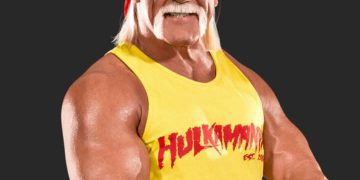The people of Ogun West, long relegated to the periphery of power, now see in Yayi a mirror of their aspirations. Grassroots organisations, youth groups, and opposition parties have rallied behind him, citing his accessibility, humility, and track record
By Kunle Somorin
In the quiet theatre of time, where history often whispers before it roars, there occasionally emerges a figure whose life is not merely a sequence of events, but a symphony of purpose. Senator Solomon Olamilekan Adeola, fondly known as Yayi, stands today at such a juncture. As he approaches his 56th year, the air in Ogun State is thick with anticipation—not merely of celebration, but of coronation.
Born on 10 August 1969 in Lagos Island, Yayi’s journey from modest beginnings to the legislative apex of Nigeria is a study in grit, grace, and governance. A chartered accountant by training, a legislator by calling, and a servant-leader by instinct, he has spent over two decades crafting policy, building infrastructure, and empowering lives. But it is in Ogun West—his ancestral home—that his legacy now seeks its most profound expression.
For the Yewa-Awori people, the governorship of Ogun State has long been a deferred dream. The late Awujale of Ijebuland, Oba Sikiru Adetona, in his memoir, declared with royal clarity: “It is the turn of the Yewa-Awori people to produce a governor for Ogun State.” That pronouncement was not a plea—it was a seal. And in Yayi, the prophecy finds flesh.
His record is not rhetorical—it is empirical. Over 100 roads and bridges. 150 classrooms. ICT centres. Health facilities. Vocational training for thousands. A Federal University of Technology in Ilaro. These are not promises—they are monuments. His interventions have reimagined the contours of possibility in Ogun West, transforming marginalisation into momentum.
Yet, the path to the governorship is strewn with political paradoxes. Chief among them is the perceived detachment of Governor Dapo Abiodun. A man of quiet calculation, Abiodun has mastered the art of ambiguity. His body language, often inscrutable, has left many wondering: will he endorse the man whose political machinery helped secure his own victories? Only time will tell.
Yayi, ever the statesman, does not brook opposition from a man he considers his elder brother, leader and mentor of sorts. In a recent statement, he congratulated Governor Abiodun on his emergence as Chairman of the Southern Governors’ Forum, eulogizing him as “a visionary leader whose stewardship has transformed Ogun State.” More than that Yayi keeps building. Consulting. Mobilising. His support base is statewide and day-by-day his followership has expanded like wild fire in harmattan. It includes opposition parties, traditional rulers, and youth groups.
For Oba Kehinde Olugbenle, the Olu of Ilaro and Paramount Ruler of Yewaland, Yayi is “a son whose contributions to Yewaland are unmatched.” In a more recent statement, he lauded Yayi’s role in upgrading the Federal Polytechnic Ilaro to a Federal University of Technology, calling it “a bold step toward advancing technological education and empowering Nigerian youths.”
Nationally, according to Senate Majority Leader Opeyemi Bamidele, Yayi he has been endorsed. He stated that: “Senator Olamilekan Adeola has demonstrated exemplary leadership and an unwavering commitment to good governance. Ogun State deserves continuity in development, and Yayi is the right man for the job.”
And President Bola Ahmed Tinubu, under whose tutelage Yayi matured, remains a quiet but potent ally. Their shared philosophy—of merit, reform, and resilience—binds them beyond politics. Yayi has consistently praised Tinubu’s reforms, describing them as “bold leadership and the political will to drive meaningful reforms that promote economic inclusion, reduce inequality, and spur growth.”
In Nigerian politics, rhetoric often eclipses reality, but Yayi’s story is refreshingly authentic. He does not merely promise—he performs. His legislative record, his infrastructural footprint, and his empowerment programmes are empirical evidence of a man who understands that governance is not about grandstanding, but about grounding.
His philosophy of leadership is Socratic: that the highest form of governance is that which elevates the governed. His interventions in education, healthcare, agriculture, and youth development are not transactional—they are transformational.
The people of Ogun West, long relegated to the periphery of power, now see in Yayi a mirror of their aspirations. Grassroots organisations, youth groups, and opposition parties have rallied behind him, citing his accessibility, humility, and track record. His ability to unify diverse interests across Ogun East and Central is seen as a critical asset in a state often fractured by regional politics.
Yet, the journey is not without its thorns. Internal party dynamics, rival ambitions, and historical zoning considerations pose formidable challenges. But Yayi is no stranger to adversity. His political journey—from Lagos State House of Assembly to the Senate—has been a masterclass in resilience. He has weathered storms, navigated betrayals, and emerged stronger, guided by a compass of conviction.
His emergence as a frontrunner for the 2027 gubernatorial race is not the result of ambition alone, but of alignment—between vision and opportunity, between preparation and providence. His candidacy is not merely political; it is poetic—a culmination of vision, preparation, and providence.
As he marks his 56th year, we do not merely celebrate a birthday—we honour a life that has become a lodestar for leadership. In the words of the late Awujale, whose legacy looms large over Ogun State, “Leadership is not about titles—it is about service.” Senator Adeola has internalised that ethos, and in doing so, has positioned himself not just as a candidate, but as a custodian of the people’s trust.
May the years ahead find him not only in the corridors of power, but in the hearts of the people—where true leadership resides. And may Ogun State, in its quest for equity and excellence, recognise in Yayi not just a man, but a movement.
•Somorin writes from Abeokuta.
•Opinions, positions or thoughts expressed here are personal and strictly of the writer/author and do not represent the views of The Daily Crucible.









































